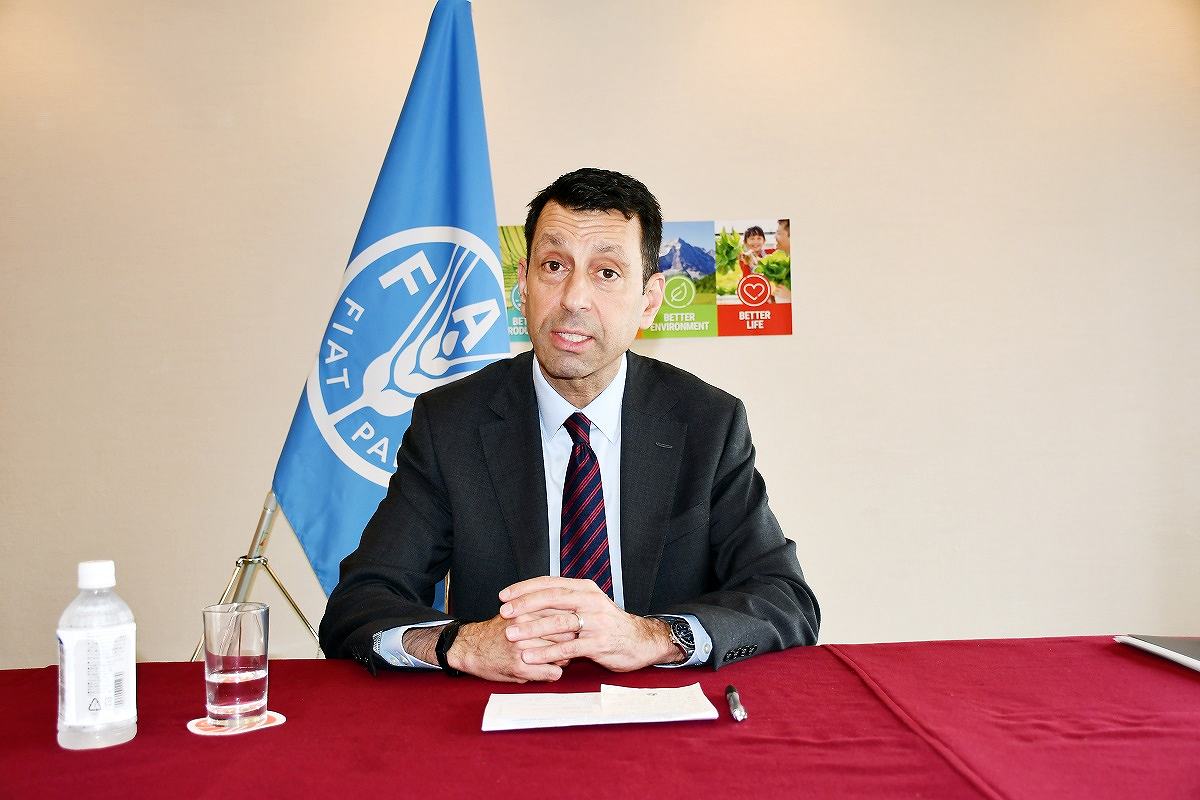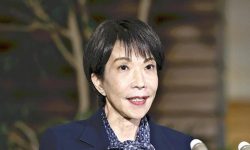FAO Environment Director Pushes for Stronger Climate Action; Stresses Potential of Japan’s Agricultural Tech

Kaveh Zahedi speaks during an interview on Wednesday in Tokyo.
17:59 JST, May 16, 2024
Kaveh Zahedi, director for climate change, biodiversity and the environment at the U.N. Food and Agriculture Organization, stressed the need for stronger action on climate change in food systems during an interview with The Japan News in Tokyo on Wednesday. He also expressed concern over increasing food insecurity due to climate change.
According to the FAO, about 700 million people are still facing hunger worldwide. Citing a “higher level of food insecurity in the world,” Zahedi said the “agri-food system we have is not delivering what it needs to.” He added that it would be difficult to reduce hunger to zero by 2030, one of the United Nations’ Sustainable Development Goals.
As to climate and the food system, he said that “agriculture is also on the front line of the impact of climate change. It contributes to and is impacted by climate change.”
Extreme weather events from climate change, such as heat waves, heavy rain and droughts, have been observed worldwide. Zahedi pointed to the major hit that food production has taken from such extremes, as well as from an increase in pests and unpredictable weather patterns.
He projected that if temperatures continue to rise at their current rate, 10% of farmland could be lost by 2050, which would put more pressure on food access.
On the other hand, agriculture is also a major source of greenhouse gas emissions, accounting for about 30% of the total, with global methane emissions coming mainly from livestock and rice paddies.
With the world population increasing, agriculture needs to “produce more with less,” Zahedi said. Sustainable agriculture, developed through investment and technology, is “a clear sort of solution pathway that we have for dealing with food and climate at the same time.”
Zahedi also argued for the importance of the food sector in tackling climate change, saying that without efforts in agriculture, it will not be possible to achieve the Paris Agreement’s goal of limiting the increase in average global temperatures to 1.5 C above pre-industrial levels.
One of the biggest challenges to climate change measures in the food sector is a lack of financing, Zahedi noted. An FAO analysis shows that the sector saw a drop in climate change financing in 2021.
He attributed the lack of financing to a failure to show that sustainable agriculture can provide economic returns, in contrast to renewable energy, and also to the fact that the climate change and agriculture used to be discussed as separate issues.
Zahedi said “there’s a big role for Japan” to offer help and support with its agricultural technology and know-how, noting its technologies for producing rice with fewer emissions and monitoring agricultural emissions, as well as Japan’s experience with carbon market mechanisms.
Zahedi was visiting Japan to attend an environmental meeting in Tokyo.
Top Articles in World
-

Israeli Ambassador to Japan Speaks about Japan’s Role in the Reconstruction of Gaza
-

Videos Plagiarized, Reposted with False Subtitles Claiming ‘Ryukyu Belongs to China’; Anti-China False Information Also Posted in Japan
-

North Korea Possibly Launches Ballistic Missile
-

Chinese Embassy in Japan Reiterates Call for Chinese People to Refrain from Traveling to Japan; Call Comes in Wake of ¥400 Mil. Robbery
-

Russia: Visa Required for Visiting Graves in Northern Territories, Lifting of Sanctions Also Necessary
JN ACCESS RANKING
-

Japan PM Takaichi’s Cabinet Resigns en Masse
-

Japan Institute to Use Domestic Commercial Optical Lattice Clock to Set Japan Standard Time
-

Israeli Ambassador to Japan Speaks about Japan’s Role in the Reconstruction of Gaza
-

Man Infected with Measles Reportedly Dined at Restaurant in Tokyo Station
-

Videos Plagiarized, Reposted with False Subtitles Claiming ‘Ryukyu Belongs to China’; Anti-China False Information Also Posted in Japan
























